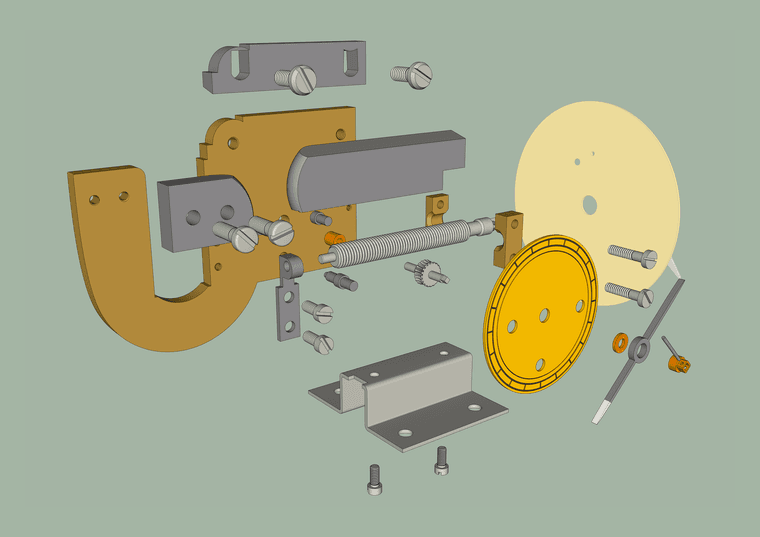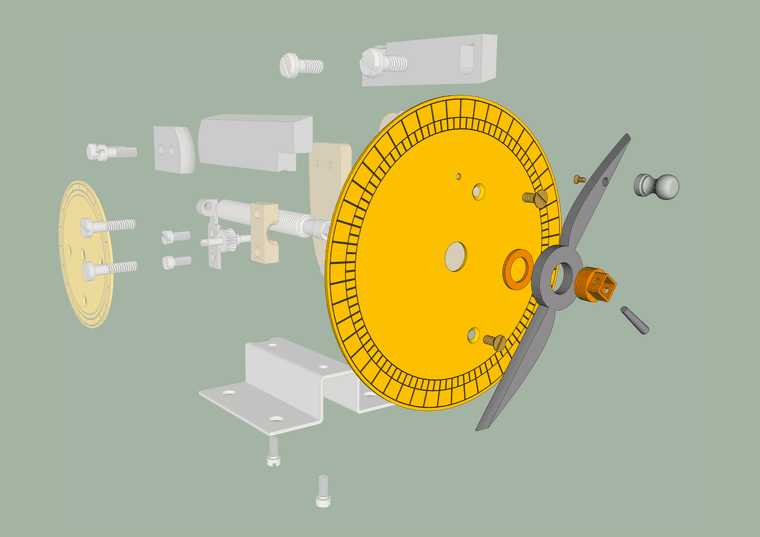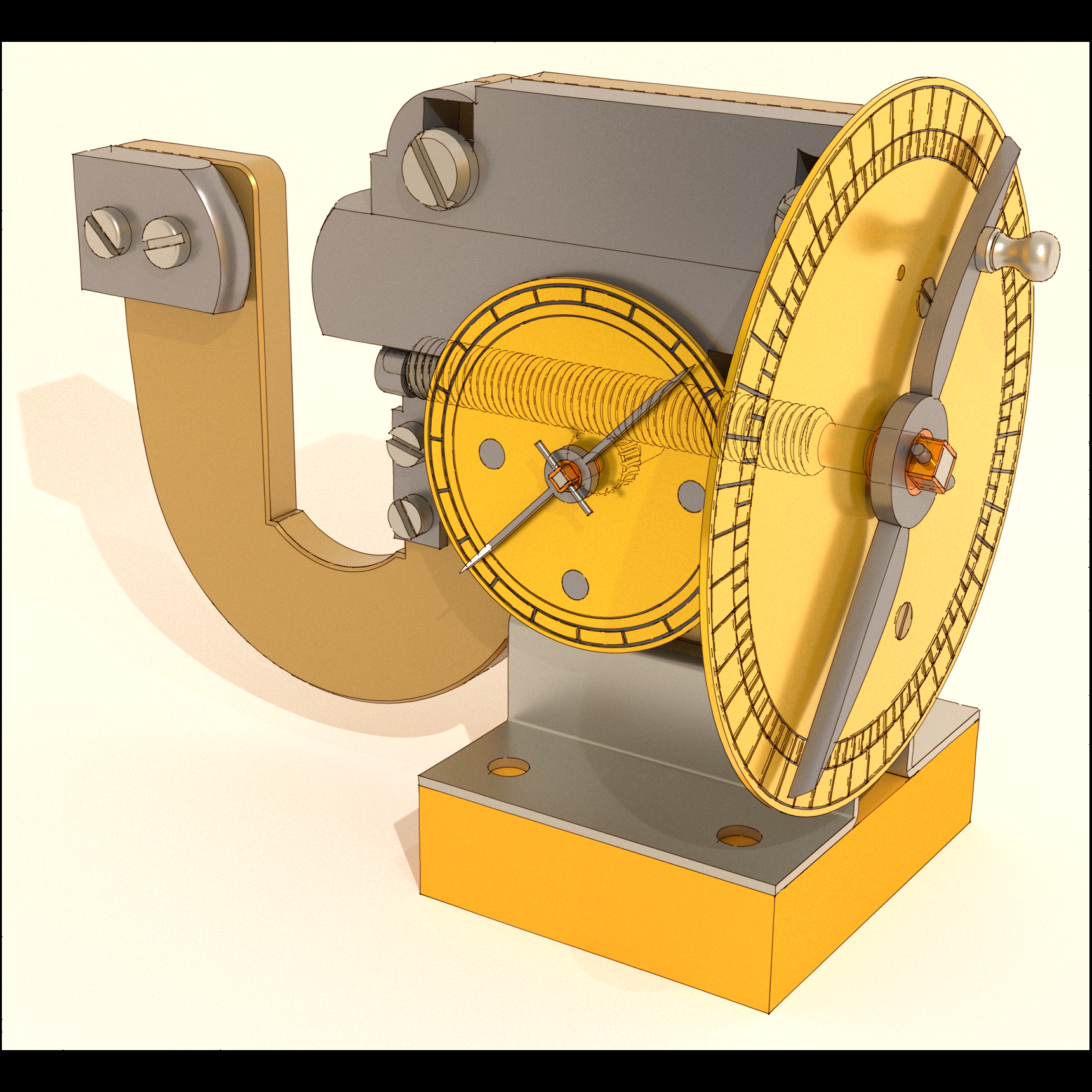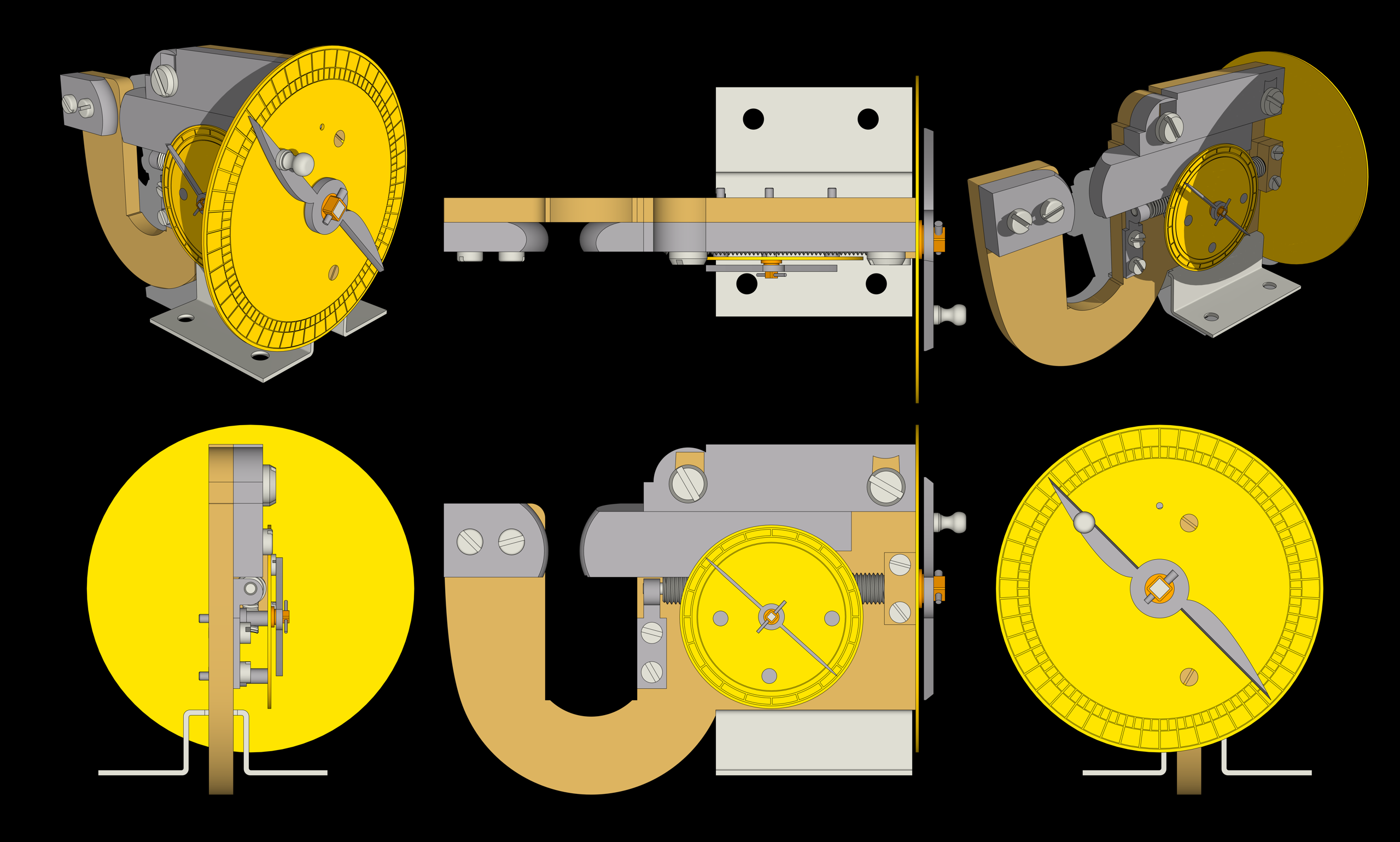"Watt" Micrometer
-
@Dave-R Beautiful model
-
Thank you all.
For those who aren't familiar with reading micrometers, the lead screw which drives the moving anvil has 20 threads per inch. So one full turn of the screw moves the anvil 0.05 in. That moves the pointer on the small dial one division and of course the pointer on the large dial, a full revolution. The major divisions on the large dial indicate 0.001 in. I don't know how precisely the original lead screw's threads were made but a device like this can be quite precise in its measurements.
-
I made a couple of exploded views just for fun.


-
@Dave-R I just watched Indiana Jones Dial of Destiny and this reminds me of the Archimedes device.
-
Very cool!
-
Decided to do a simple render in Vray,

-
 lovely graphics! - is that a combined one with SkUp?
lovely graphics! - is that a combined one with SkUp? -
@HornOxx thank you! Two ceparate lines-only exports from SketchUp combined with the render from Vray.
-
Great model and excellent presentation!
-
@Dave-R
That would be a neat model to view in a 3D viewer.
-
@ntxdave I don't have any thing to view it in 3D but here you poke around in the online SketchUp viewer.
-
The engineering in the spindle arm is something else. Its so refreshing to see the inners working compared to modern devices.
This is so plug and play. You would struggle to disassemble and fix a modern micrometer and then recalibrate it yourself.
I could disassemble a modern micrometer but probably couldn't reassemble it.

-
@Rich-O-Brien thank you! By "spindle arm" are you referring to the lead screw that drives the moving anvil?
Advertisement








